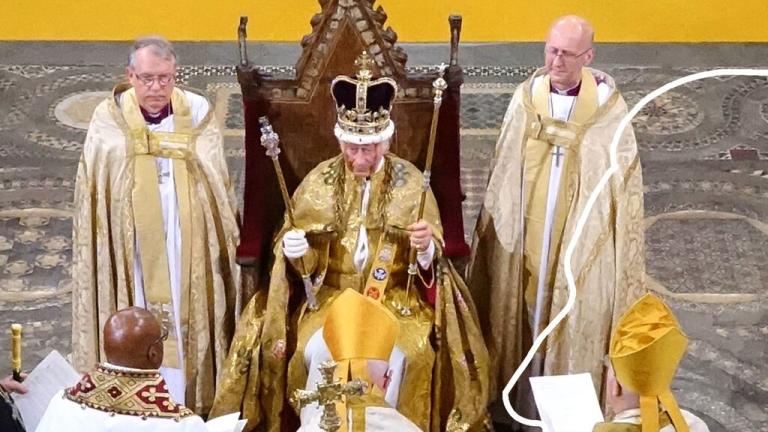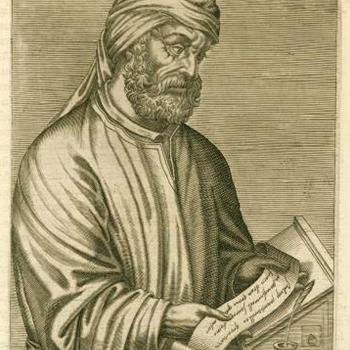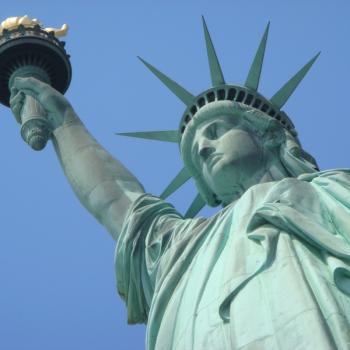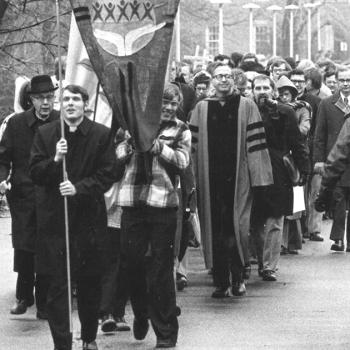Louisiana has passed a law requiring that the Ten Commandments be posted in all of the state’s classrooms. In 1980, the Supreme Court overturned a similar requirement in Kentucky, but that was before 2022 when the court threw out the principle that was the basis of that decision, the “Lemon Test,” which requires laws regarding religion to have a secular purpose, neither advance nor inhibit religion, and avoid the state becoming “entangled” in religion.
Reportedly, Louisiana governor Jeff Landry pushed the new law in order to find out where the post-Lemon court will draw the lines. He said that he “can’t wait to be sued,” and a number of groups are lining up to oblige him.
The opponents of the requirement are saying, of course, that the new law violates the separation of church and state and that it amounts to an “establishment of religion” in violation of the First Amendment, which states, “Congress shall make no law respecting an establishment of religion, or prohibiting the free exercise thereof.”
So does posting the Ten Commandments establish Christianity (perhaps Reformed Protestantism, if the non-Catholic and non-Lutheran numbering is followed) and, presumably, Judaism (which has a different numbering still) as Louisiana’s official religion?
In discussing the controversy, Natan Ehrenreich at National Review draws on a new book on the Establishment Clause by two legal scholars, Nathan S. Chapman and Michael W. McConnell, entitled Agreeing to Disagree: How the Establishment Clause Protects Religious Diversity and Freedom of Conscience.
They say that at the time of the founding the establishment of a religion, which was pretty much the norm in Europe, involved six specific characteristics. In countries with a state church, the state. . .
(1) exercised control over doctrine, governance, and personnel of the church;
(2) had laws mandating compulsory church attendance;
(3) provided financial support to the church;
(4) prohibited or restricted worship in other churches;
(5) made use of church institutions for public functions;
(6) restricted political participation to members of the established church.
Thus, in the Church of England of the time, the state supervised doctrine, appointed bishops, and assigned clergy to parishes. It enforced laws requiring attendance, citing Luke 14:23, “compel them to come in.” It fully financed the church. It forbade Catholic services and those of Protestant separatists (which is why the Pilgrims came to Plymouth Rock). The Anglican church was fully involved in coronations, state funerals, the opening of Parliament, and other state ceremonies, as is the case even today. And only Anglicans–not Catholics or Protestant separatists–were allowed to hold public office, vote in parliamentary elections, or attend the universities.
To be sure, by the late 18th century, some of these practices were toned down. The Toleration Act of 1688 allowed for non-Anglican Protestants, as long as they were licensed and did not meet in private homes. Catholics were gradually granted toleration beginning in 1778, when they were allowed to worship publicly, and continuing through the 19th century, when they were allowed through various laws to hold office, enroll in universities, and the like. But even today many of those original characteristics apply to the Church of England.
Other nations had their own state churches that had the same or similar characteristics. Where Catholicism was the state religion, the church hierarchy had the responsibility of appointing bishops and assigning priests to parishes, but the state generally was allowed to make recommendations that were usually followed. Switzerland and the Netherlands had Calvinist state churches. The various principalities of Germany had their own state churches, with some being Catholic, some being Reformed, and some being Lutheran.
The Scandinavian nations of Sweden, Denmark, Norway, Finland, and Iceland had Lutheran state churches. For much of their history, no other churches were allowed. As a result, the Lutheran cultural influence is said to be greater in Scandinavia than in Germany, which was home to a number of other religious traditions and smaller state churches. That would change, somewhat, with the rise of Pietism in the 19th century, though that movement for the most part stayed within the context of Lutheran churches. And, of course, the state churches, under the control of the secular authorities, would become more and more secular themselves with the advent of theological liberalism.
Here is my question, which perhaps some of you can help me with. How can Lutheran state churches be justified given the Lutheran doctrine of the Two Kingdoms? They must have been, since many orthodox Lutherans operated that way, before the mechanisms of the state church led them to become liberal and secularist. That began to happen as early as the 18th and 19th centuries, as we see with the “Old Lutherans” who would leave the state church and come to America, eventually founding the Lutheran Church Missouri Synod.
Back to our main topic, Ehrenreich believes that if the Supreme Court justices are truly “originalists” in their interpretation of the Constitution, they will rule that posting the Ten Commandments does not constitute an establishment of religion. After all, it has nothing to do with the six defining characteristics of a religious establishment. Nor would prayer in school, displays of religious symbols, certain kinds of funding, and other contentious issues involving the relationship between church and state.
Do you think the Justices will rule in that way?
Some conservatives–the Catholic integralists and Reformed and Pentecostal dominionists–think that America should have an established religion. Do you think they would like their churches being subject to those six characteristics of state churches?
It seems to me that, judging from history, state religions do not generally, in practice, mean that the religion rules the state. Rather, the state rules the religion.
Photo: Coronation of Charles III by Foreign, Commonwealth & Development Office, CC BY-SA 4.0 <https://creativecommons.org/licenses/by-sa/4.0>, via Wikimedia Commons


















